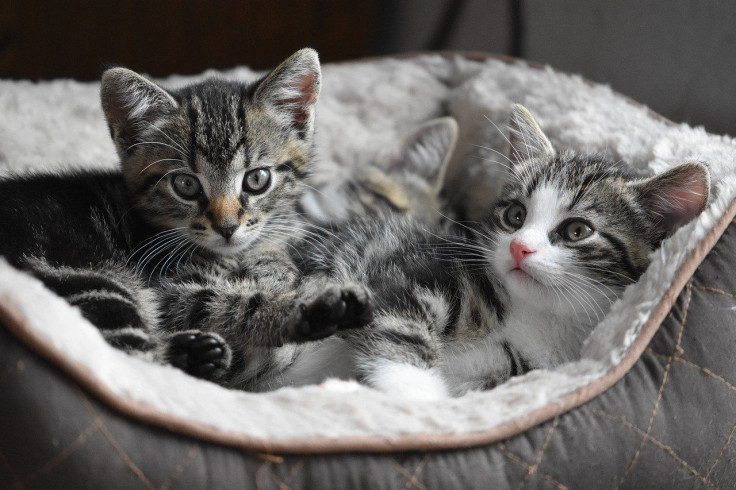Cats Can Be Infected With COVID-19, Transmit Virus To Other Cats: Study

KEY POINTS
- In a laboratory setting, cats readily became infected with SARS-CoV-2
- They also transmitted the virus to previously uninfected cats through direct contact
- Pet owners are advised to care about the welfare of their pets during the pandemic
A new study confirmed cats can be infected with the coronavirus, and can pass it on to other felines as well.
For the study published in the New England Journal of Medicine, the researchers administered SARS-Cov-2 isolated from a human patient to three cats. SARS Cov-2 is the virus responsible for causing COVID-19. By the next day, nasal swabs detected the virus in two of the cats, and, within three days, in all three of the animals.
The researchers also placed uninfected cats in each initial three cats' cages to see whether the virus can be transmitted between them via direct contact. Rectal and nasal swabs were taken each day to detect the presence of the virus.
Although the researchers did not administer the virus to the uninfected cats, one of them was shedding the virus within two days of being in the same cage as one of the initial cats, and all of the animals were found to be shedding the virus within six days.
The cats shed the virus from their nasal passages for six days but none of them presented any symptoms. The virus was also not lethal to any of them. None of the rectal swabs contained the virus and all of them were eventually cleared.
The results of the study, coupled with reports of pet cats and big felines from the Bronx Zoo testing positive for the COVID-19, suggest cats can be infected with COVID-19 from exposure to infected people or other infected cats. In the case of the big cats at the Bronx Zoo, for instance, the cats are believed to have been infected by an asymptomatic or presymptomatic zoo employee who was unknowingly shedding the virus.
As such, the researchers advise people to avoid being in contact with their pets if they are presenting symptoms of COVID-19, and to keep them indoors to avoid being in contact with other cats and people. In fact, in late April, the Centers for Disease Control and Prevention advised pet owners to socially distance their pets from other people and animals.
"It's something for people to keep in mind," research professor Peter Halfmann, who helped lead the study, said in a news release from the University of Wisconsin-Madison. "If they are quarantined in their house and are worried about passing COVID-19 to children and spouses, they should also worry about giving it to their animals."
The researchers also noted the need to study the role that cats play in the transmission of COVID-19, and are also concerned about the welfare of the animals. Early in the outbreak, there were reports of pets being abandoned or killed amid concerns that they may transmit the virus.
"Cats are still much more likely to get COVID-19 from you, rather than you get it from a cat," Keith Poulsen of the Wisconsin Veterinary Diagnostic Laboratory said.
So far, there is no evidence that cats can readily transmit the virus to people. Humans remain to be the biggest risk when it comes to COVID-19 transmission.
"The current spread of COVID-19 is a result of human to human transmission. To date, there is no evidence that companion animals play a significant a role in spreading the disease," the World Organization for Animal Health said. "Therefore, there is no justification in taking measures against companion animals which may compromise their welfare."
© Copyright IBTimes 2025. All rights reserved.






















